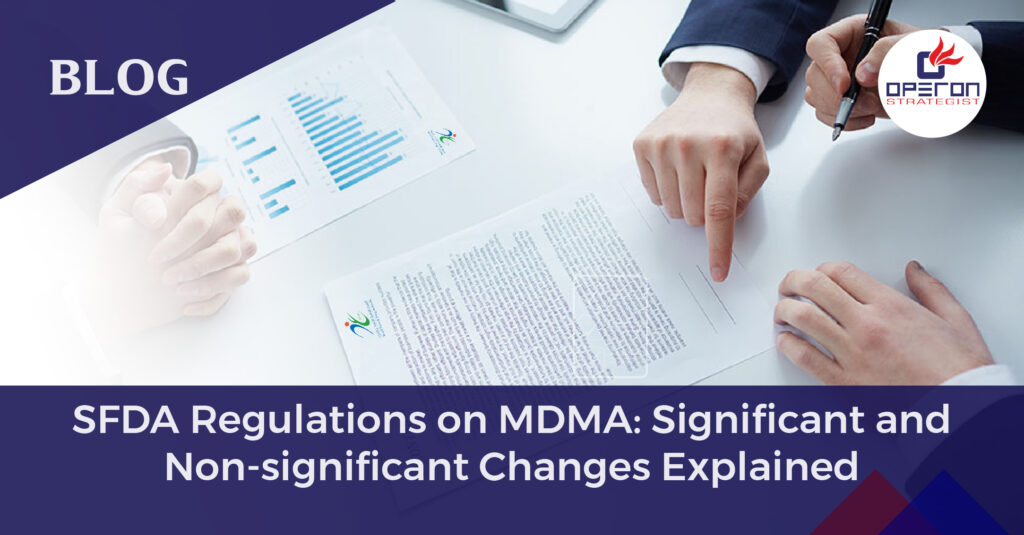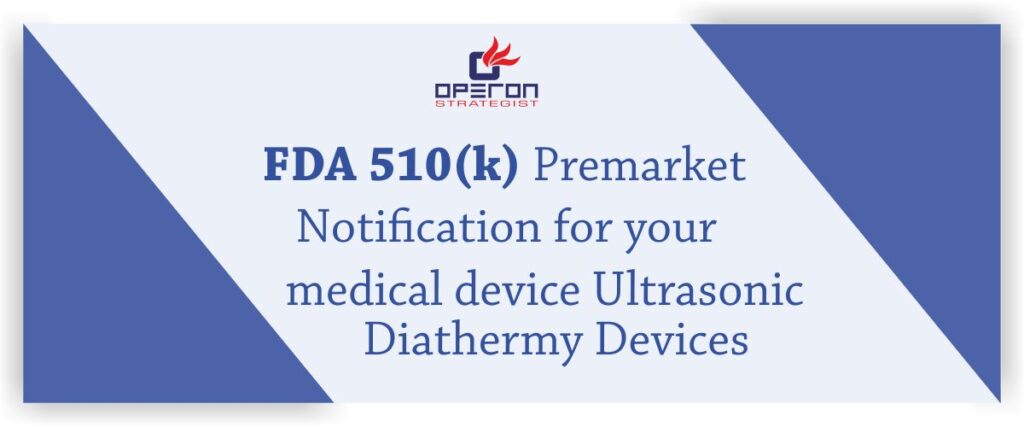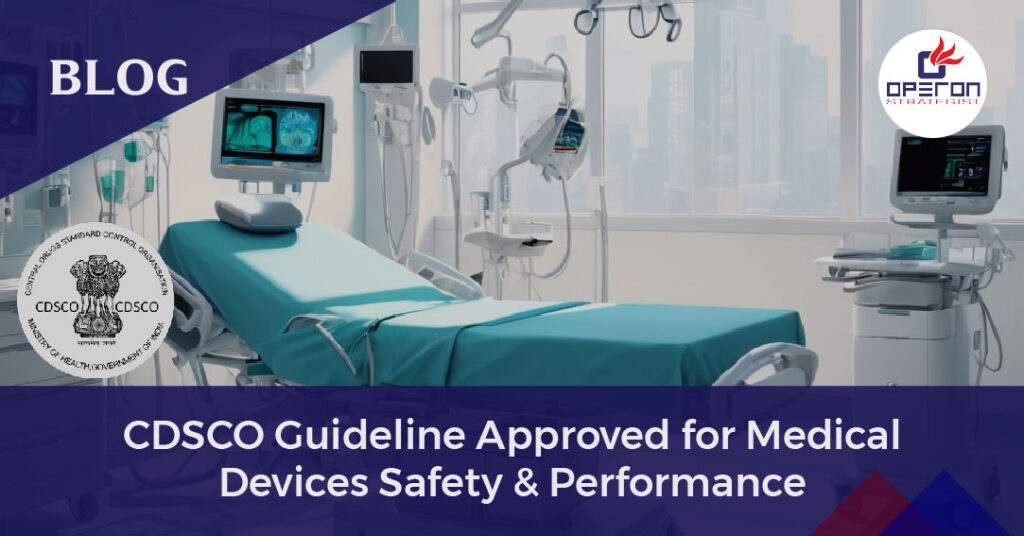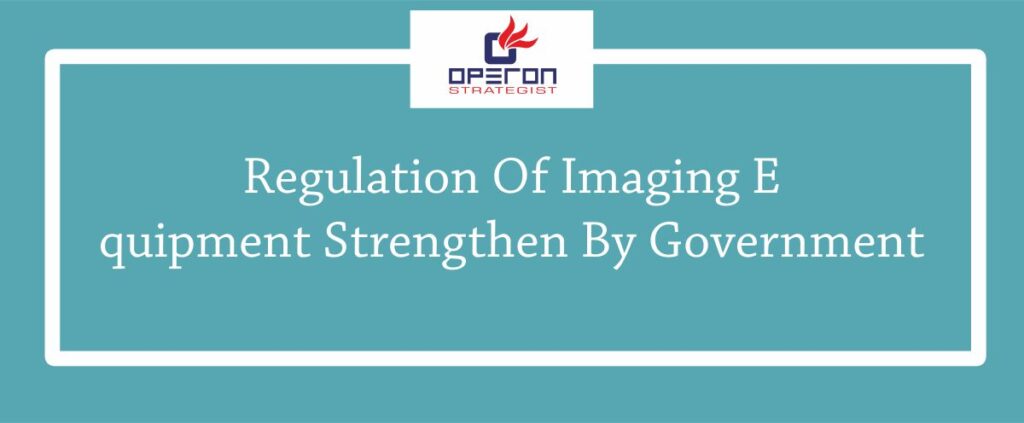SFDA Issues Guidance Document on MDMA
The Saudi Food and Drug Authority (SFDA) recently released a guidance document to clarify between significant and non-significant changes related to registered medical devices. SFDA is a regulatory body regulating medical devices including IVD’s sold and distributed in Saudi. As per the document, any changes made to the registered medical device or its process must be reported to the SFDA.
You can check our service page on SFDA medical device regulations if you want to need regulatory compliance.
We will discuss more the changes mentioned in the document and the obligations related to it as per SFDA regulations in this blog.
Looking for Consulting Services for SFDA Regulations?
Let’s have a talk about your project.
What Does the SFDA Regulation Guidance Document Contain?
The guidance document provided by SFDA says that any changes made by the medical device manufacturer should be categorized as significant or non-significant and must be reported and notified to the SFDA. The document also mentions the obligations of the manufacturer with respect to changes depending on significance.
Obligations
For significant changes: A report needs to be sent to the SFDA within 10 days of the occurrence of the change. A significant change will require SFDA approval.
For non-significant changes: SFDA needs to be notified of the change within 30 days of the occurrence of the change. Non-significant change does not need SFDA approval.
The guidance document also covers on type of changes made to medical devices including IVDs. SFDA puts light on the significant and non-significant changes related to the intended use and labeling, QMS, design, manufacturing processes, software, sterilization and materials used and safety and performance.
Some of the significant and non-significant changes
QMS
Significant changes related to QMS include changes in critical validated processes, particularly changes to a process where the validation is crucial to reduce risks related to that process. Patients or users may experience adverse effects if the risks are left unaddressed.
Some examples of significant changes related to QMS:
- Changes to the sterilization method.
- Changes in critical parameters of the sterilization process.
- Change in a drug coating process.
- Change in a viral inactivation process.
Manufacturing Processes, Facilities or Equipment
Significant changes
Changes in manufacturing processes, facilities, or equipment (including changes to outsourced processes) that may affect the safety or performance of the device will be considered significant. These include:
- Changes in the equipment used for cutting resulting in a change in the length of sutures.
- Changes to the molding or cutting manufacturing process.
- Change of centrifugation to a filtration process which results in better molecule separation.
- Changes in the implant manufacturing process from casting to 3D printing.
- Change from manual operation to automatic operation, without changing the product specification.
- Changes to the packaging process.
Non-significant changes
The document also mentions changes that will be considered non-significant. Below are some examples of non-significant changes:
- Adding new or modifying existing test acceptance criteria or test methods in order to achieve equivalent or better reliability assurance.
- Changes in packaging that do not affect the sterile barrier integrity of a device, or its performance after storage, shelf life, or changing to the storage requirements. However, Validation and stability testing must demonstrate that the integrity of the system is not compromised.
Software
The scope of the guidance document covers changes to both standalone and software embedded in a medical device.
Significant changes
Some of the significant changes related to software:
- Changes that impact the control of the device.
- Changes that are initiated by the manufacturer that modifies the algorithm.
- Changes related to the addition of new features or software applications.
- Changes in software that includes a change in the operating system.
Non-significant changes
- A simple bug fix to correct the display error.
- Changes in software to disable certain functions that do not interact with any functions or affect the performance of the device.
- Changes in software to modify the appearance of the user interface with a minimal or no impact on performance.
SFDA regulations for medical devices are stringent and this document serves as a helpful guide. Please refer to this pdf in case you want more details on the changes.
Operon Strategist is a medical device regulatory consulting company that provides regulatory advisory services and guidance to various manufacturers in the healthcare industry to ensure their strategic development. We provide SFDA regulatory consulting services for manufacturers in Saudi Arabia and all over the world.
Contact us for any regulatory compliance consulting and medical device manufacturing plant setup services.




